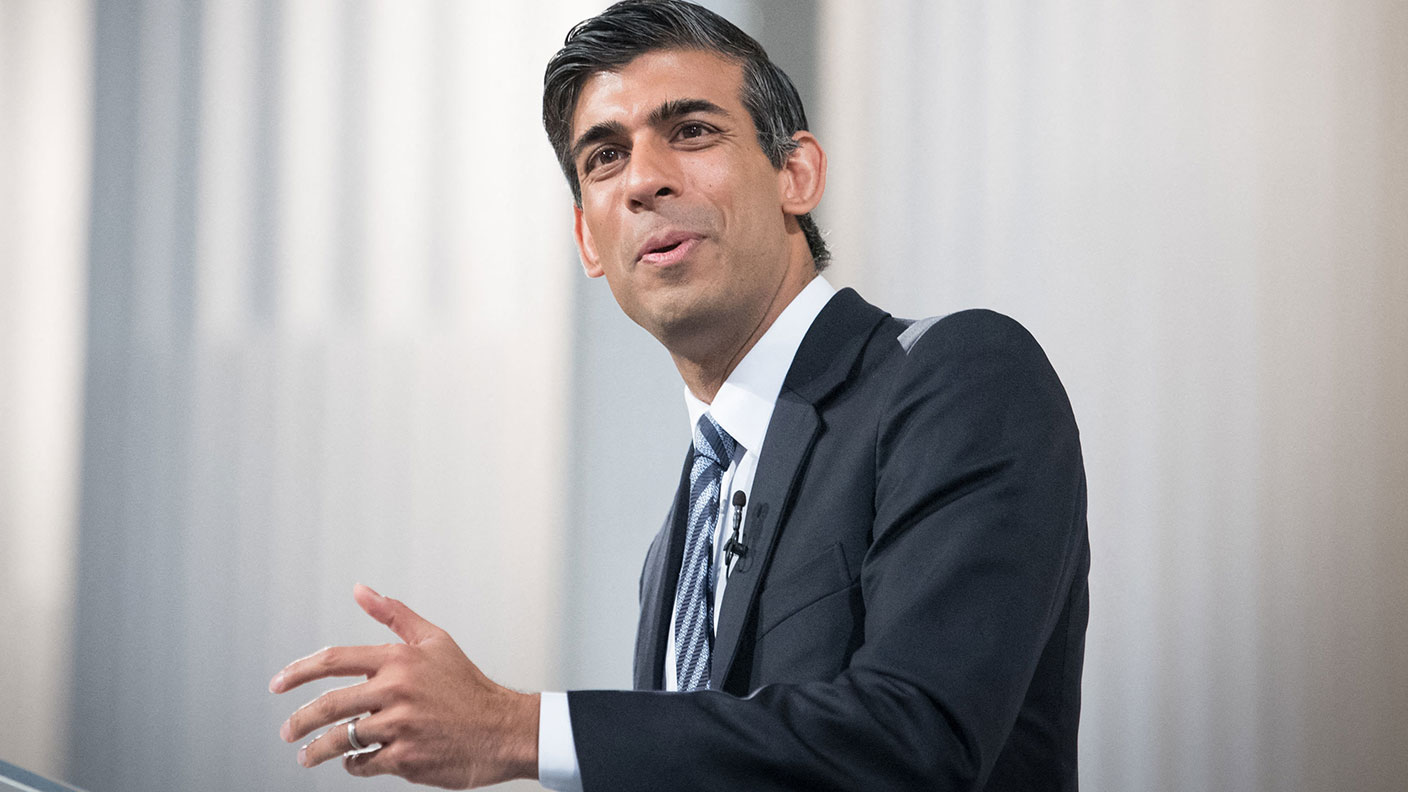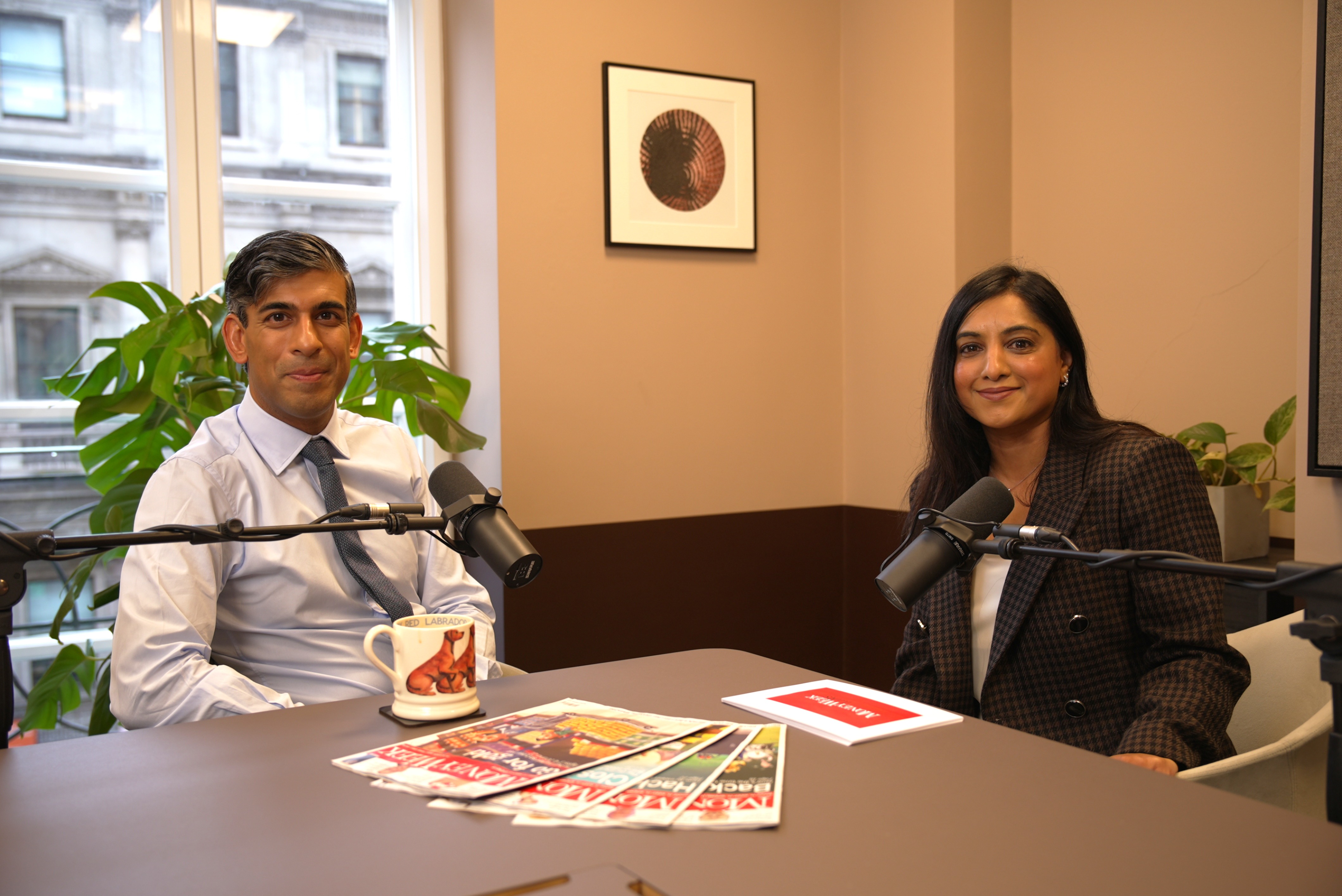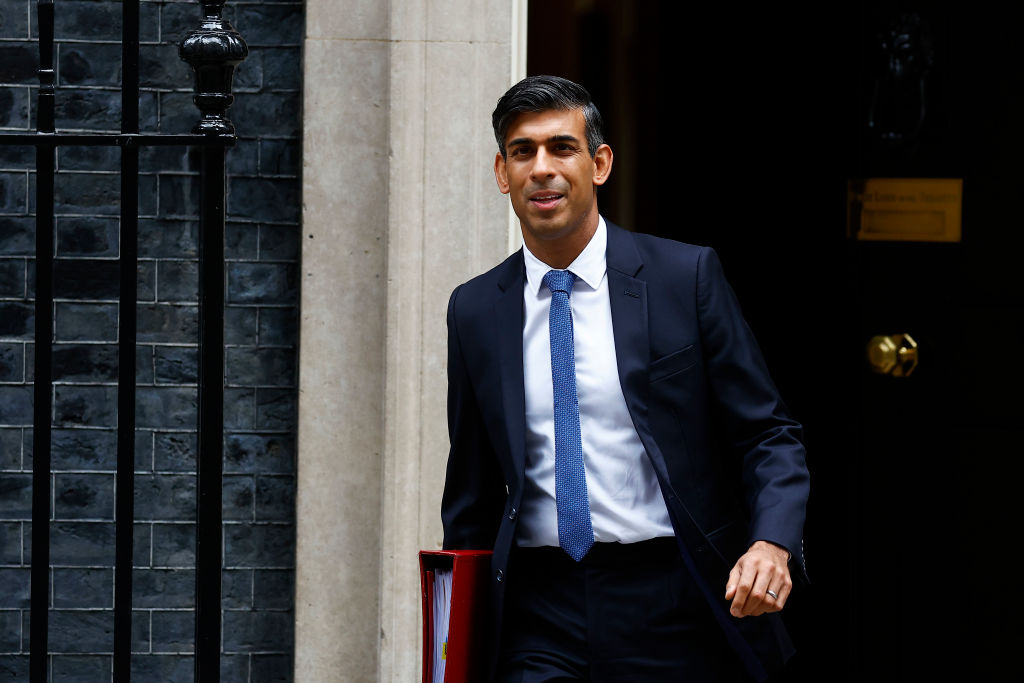State pensioners probably aren’t going to get an 8% pay rise next year
The “triple-lock” could in theory mean an 8% rise in state pensions this year. But that’s not going to happen. Saloni Sardana explains what the triple lock is, and why the chancellor wants to scrap it.


Get the latest financial news, insights and expert analysis from our award-winning MoneyWeek team, to help you understand what really matters when it comes to your finances.
You are now subscribed
Your newsletter sign-up was successful
Want to add more newsletters?

Twice daily
MoneyWeek
Get the latest financial news, insights and expert analysis from our award-winning MoneyWeek team, to help you understand what really matters when it comes to your finances.

Four times a week
Look After My Bills
Sign up to our free money-saving newsletter, filled with the latest news and expert advice to help you find the best tips and deals for managing your bills. Start saving today!
Governments globally have spent a great deal of money to contain the worst economic fallout from Covid-19. Now they’re wondering how to keep the public finances under control.
The last thing the UK government needs right now is a massive increase in one of its biggest bills – the state pension.
So it’s little wonder that there’s a lot of talk this week of chancellor Rishi Sunak putting a halt to the “triple-lock” on the state pension – even if it means breaking a manifesto pledge.
MoneyWeek
Subscribe to MoneyWeek today and get your first six magazine issues absolutely FREE

Sign up to Money Morning
Don't miss the latest investment and personal finances news, market analysis, plus money-saving tips with our free twice-daily newsletter
Don't miss the latest investment and personal finances news, market analysis, plus money-saving tips with our free twice-daily newsletter
So what is the “triple lock” and will it be scrapped for 2022?
What is the triple lock and why was it introduced?
The triple lock pension is the formula by which state pensions are set each year. Currently, state pensions rise in line with either the cost of living (as measured by the annual change in the consumer prices index – CPI); the change in average earnings; or 2.5% – whichever is highest.
These three factors are known as the triple lock. It was introduced by the Conservative/Liberal Democrat coalition in 2010 and was intended to act as a guarantee that pensioners’ purchasing power never gets eroded by higher living costs.
Given the relatively low levels of inflation since then, pensioners have enjoyed significant “real” terms increases in their pensions – which is one factor that has helped to drastically reduce the number of pensioner households living beneath the poverty line.
How has Covid-19 made the triple lock controversial?
Maintaining the triple lock until at least 2024 has long been a key Conservative manifesto promise. But while the Conservatives have wanted to honour that pledge, statistical oddities related to the Covid-19 shutdown and recovery make that rather difficult.
Covid-19 resulted in millions of workers being put on furlough – reducing their wages while being able to keep their jobs. Then, when the economy started to reopen, many of those who were furloughed returned to their old jobs or sought new ones.
One result of this is that the rise in wages for this year has been artificially inflated.
The most recent reading for average earnings growth from the Office for National Statistics (ONS) found that headline wages were growing by more than 8% a year. However, in most cases, earnings haven’t increased by anything like that much – the number is simply being inflated by people coming back to work. The ONS reckons that actual wage growth is more in the range of 3.5% to 4.9%.
How likely is it for the triple lock to change?
If it is up to Sunak then there is a high chance the triple lock may be lifted, as the chancellor has clearly signalled he is willing to break the manifesto promise, due to numbers being grossly inflated because of the pandemic.
There is certainly nothing to stop him. Politically, it could prove unpopular – although at the same time, given the unusual circumstances and the fact that we’ve racked up a lot of debt during the pandemic, it shouldn’t be difficult to explain why boosting the state pension by 8% based on faulty statistics is probably not the best use of public money.
As Julian Jessop, economic adviser to the Institute of Economic Affairs think tank, points out, each percentage point increase will mark a £900m rise in annual spending on state pensions.
Forecasts by the Office for Budget Responsibility indicate that upholding the triple lock promise for next year would increase state pension spending in 2024-2025 by £6bn more than if it rose at the pace of inflation.
What’s next?
It looks as though the government will announce its decision later this week, alongside its ideas on paying for social care – we’ll cover both topics when the news is confirmed, but it looks as though the state pension is most likely to rise by inflation or 2.5%, rather than the artificially inflated earnings figure.
Get the latest financial news, insights and expert analysis from our award-winning MoneyWeek team, to help you understand what really matters when it comes to your finances.
Saloni is a web writer for MoneyWeek focusing on personal finance and global financial markets. Her work has appeared in FTAdviser (part of the Financial Times), Business Insider and City A.M, among other publications. She holds a masters in international journalism from City, University of London.
Follow her on Twitter at @sardana_saloni
-
 Should you buy an active ETF?
Should you buy an active ETF?ETFs are often mischaracterised as passive products, but they can be a convenient way to add active management to your portfolio
-
 Power up your pension before 5 April – easy ways to save before the tax year end
Power up your pension before 5 April – easy ways to save before the tax year endWith the end of the tax year looming, pension savers currently have a window to review and maximise what’s going into their retirement funds – we look at how
-
 Rishi Sunak: MoneyWeek Talks
Rishi Sunak: MoneyWeek TalksPodcast On the MoneyWeek Talks podcast, Rishi Sunak tells Kalpana Fitzpatrick that we need better numeracy skills to improve financial literacy and boost the economy.
-
 Is an inheritance tax (IHT) cut on the way?
Is an inheritance tax (IHT) cut on the way?Tax Talk that the government might cut or scrap inheritance tax in its Autumn Statement is rife. We look at how it could be reformed, and what difference it would make.
-
 Act now to bag NatWest-owned Ulster Bank's 5.2% easy access savings account
Act now to bag NatWest-owned Ulster Bank's 5.2% easy access savings accountUlster Bank is offering savers the chance to earn 5.2% on their cash savings, but you need to act fast as easy access rates are falling. We have all the details
-
 Moneybox raises market-leading cash ISA to 5%
Moneybox raises market-leading cash ISA to 5%Savings and investing app MoneyBox has boosted the rate on its cash ISA again, hiking it from 4.75% to 5% making it one of top rates. We have all the details.
-
 October NS&I Premium Bonds winners - check now to see what you won
October NS&I Premium Bonds winners - check now to see what you wonNS&I Premium Bonds holders can check now to see if they have won a prize this month. We explain how to check your premium bonds
-
 Government considering cuts to inheritance tax, reports say
Government considering cuts to inheritance tax, reports sayThe Sunday Times reported government officials are considering cuts to inheritance tax ahead of the general election.
-
 The best packaged bank accounts
The best packaged bank accountsAdvice Packaged bank accounts can offer great value with useful additional perks – but get it wrong and you could be out of pocket
-
 Bank of Baroda closes doors to UK retail banking
Bank of Baroda closes doors to UK retail bankingAfter almost 70 years of operating in the UK, one of India’s largest bank is shutting up shop in the UK retail banking market. We explain everything you need to know if you have savings or a current account with Bank of Baroda
